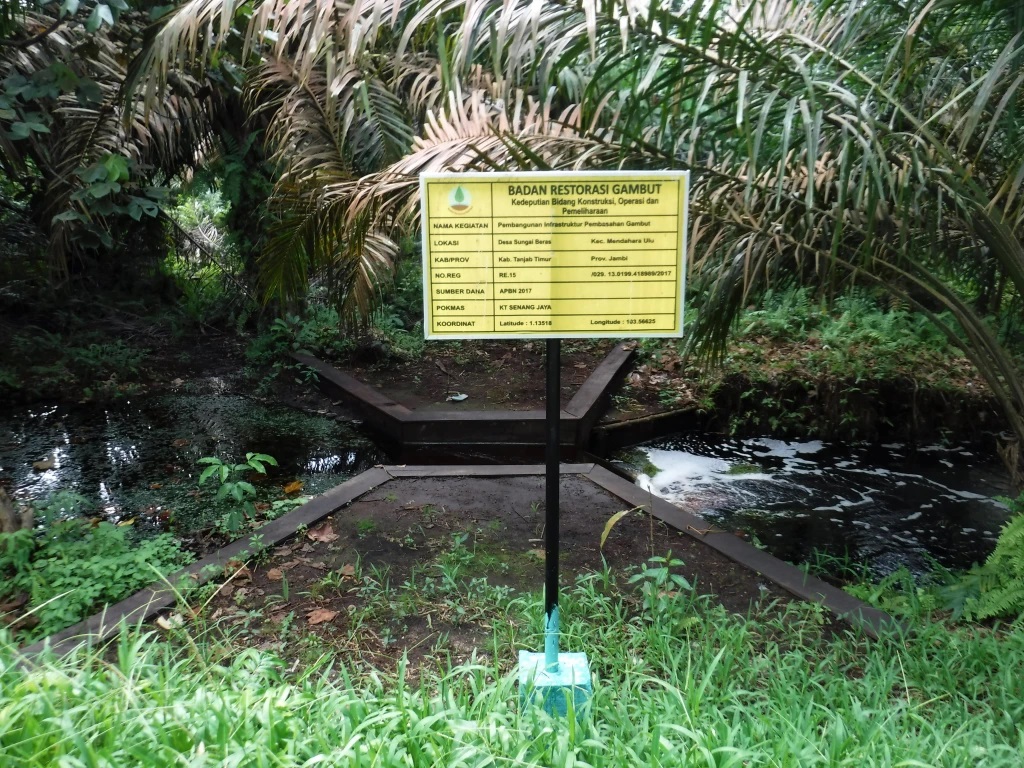
Drainage canal management, Indonesia (Photo Credit: Eleanor Warren-Thomas)
New SEnSOR-linked research led by Dr Eleanor Warren-Thomas and colleagues, investigated whether peat restoration initiatives affect biodiversity and oil palm yields on smallholdings in Indonesia. Initiatives to re-wet cultivated peatlands could protect both biodiversity and farms if they reduce fire risk, but there are concerns that re-wetting could reduce yields and damage livelihoods. The team from the UK and Indonesia studied yields and bird diversity in smallholdings that varied in drainage intensity and a nearby protected peat swamp forest in Jambi, Sumatra. They found that neither bird species richness nor oil palm yields were affected by the amount of drainage. This suggests that peatland re-wetting initiatives could benefit smallholders by reducing fire risk without reducing yields. Drainage levels did not appear to affect on-farm bird diversity, which was low with very few species of conservation concern, but reducing fire risk could help protect vital remnant forest for biodiversity. Dr Eleanor Warren-Thomas wrote an incredibly interesting blog post about the work that is available in English and Bahasa Indonesia and the full article, which was published in the Journal of Applied Ecology, is available here.
